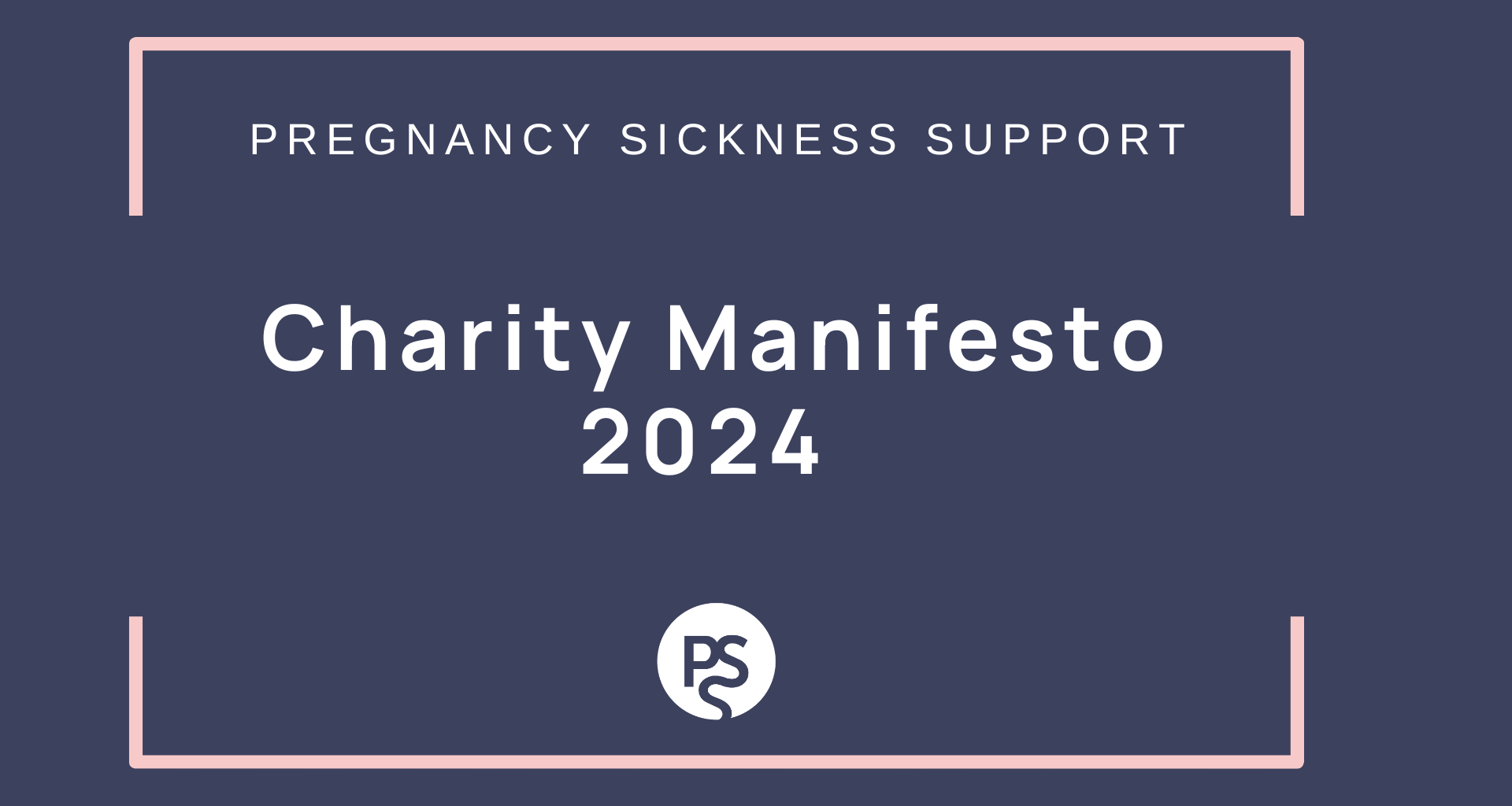Pregnancy Sickness Support Manifesto
As the election approaches, we call on the next government to include the following essential changes in their manifesto to improve the lives of women and birthing people suffering from Hyperemesis Gravidarum (HG):
- Standardised Care Guidelines:
- Action: Ensure all Hospital Trusts update their guidelines to align with the Royal College of Obstetricians and Gynaecologists (RCOG) recommendations.
- Details: The RCOG’s Green-top Guideline on the management of nausea and vomiting in pregnancy and Hyperemesis Gravidarum provides best practices for diagnosis, management, and treatment. All Hospital Trusts must adopt these guidelines to provide consistent and high-quality care across the UK.
- Impact: This will guarantee standardised, evidence-based care, reducing variability in treatment quality and outcomes (RCOG) (NHS England Digital).
2. Comprehensive Support for Pregnancy Loss:
-
- Action: Offer counselling to women who terminate HG pregnancies, integrating these services into existing baby loss pathways.
- Details: Terminating a pregnancy due to HG can have profound psychological effects. By ensuring counselling is offered similarly to what is provided in baby loss pathways, we acknowledge their loss and provide necessary emotional support.
- Impact: This will help them cope with the emotional aftermath, reducing long-term psychological distress and promoting mental health recovery.
3. Equal Access to Treatments:
-
- Action: Ensure equal access to the treatments outlined in the RCOG guidelines.
- Details: The RCOG guidelines outline specific treatments and interventions for managing HG, including rehydration, antiemetic medications, and nutritional support. Equal access means these treatments should be available to all irrespective of postcode, ethnicity, race, age, sexuality, gender identity and other marginalised characteristics.
- Impact: This will eliminate disparities in care, ensuring that all women and birthing people receive the best possible treatment for HG, leading to better health outcomes.
4. Mandatory HG Training for Healthcare Professionals:
-
- Action: Implement mandatory HG training for GPs, midwives, and other relevant primary care staff.
- Details: HG is a severe condition that requires specific knowledge for proper management. Mandatory training will equip healthcare professionals with the necessary skills to recognise, diagnose, and treat HG effectively.
- Impact: Increased awareness and improved quality of care will result in earlier diagnosis and better management of HG, improving patient outcomes and reducing the overall burden on healthcare systems. Hospital admissions for HG are significant, with many admissions potentially preventable through better primary care interventions. Enhanced primary care management can reduce the need for hospitalisation by providing early and effective outpatient care.
5. Increased Funding for HG Research and Support Services:
-
- Action: Allocate additional funding for HG research and support services, within budgets for maternity care, with a focus on minority ethnic and socially disadvantaged groups who are more likely to develop HG and be hospitalised for it.
- Details: Research shows that certain minority ethnic women along with socially disadvantaged women and girls have higher rates of HG and associated hospitalisations. Allocating funding to study these disparities and develop targeted interventions is crucial.
- Impact: Advancing research will lead to new and improved treatments, while enhanced support services will provide immediate relief and assistance to women suffering from HG. Addressing disparities will ensure that all women receive the care and attention they need.
6. Addressing Mental Health Needs:
-
- Action: Integrate mental health screening and support into routine HG care, ensuring access to appropriate and knowledgeable mental health services.
- Details: Hyperemesis Gravidarum (HG) significantly impacts mental health, with numerous studies highlighting the association between HG and increased rates of anxiety, depression, and suicidal ideation. A survey of over 5,000 women with HG revealed that 25.5% occasionally thought about suicide, while 6.6% regularly considered it (King’s College London). Furthermore, suicide is the leading cause of direct maternal death in the UK during the perinatal period, accounting for a significant portion of maternal deaths (Maternal Mental Health Alliance) (Oxford University). The intense physical and emotional toll of HG necessitates comprehensive mental health support.
- Impact: Providing HG-informed mental health support will help identify and treat mental health issues early, reducing the risk of severe outcomes, including suicide, and improving overall well-being for HG sufferers. Integrating mental health services into routine HG care ensures that women and birthing people receive holistic treatment, addressing both physical and psychological needs.
7. Public Awareness Campaigns:
-
- Action: Fund and promote public awareness campaigns about Hyperemesis Gravidarum.
- Details: Increasing public understanding of HG through awareness campaigns will help to reduce stigma and misinformation about the condition and ensure sufferers recognise when they are experiencing severe symptoms that require medical treatment.
- Impact: A well-informed public will empower women to seek medical help when needed rather than suffering in silence. A better understanding of HG throughout society will mean the public will be more empathetic and supportive, ensuring that sufferers feel understood and less isolated.
If you wish to support our charity’s manifesto, please reach out to your local MP. Share the manifesto link with them, urging their support for these changes and encouraging them to advocate for including our proposals in the next government’s plans for maternity care and women’s health.




